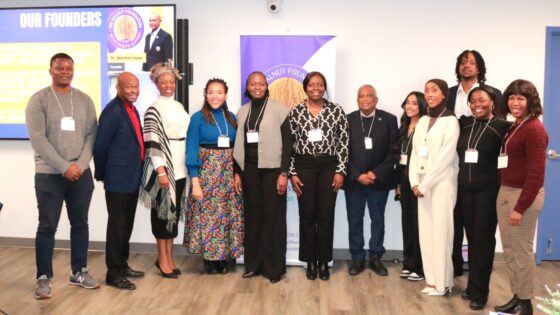on
BY SIMONE J. SMITH
Doublespeak
What is doublespeak?
According to William Lutz (an American linguist who specializes in the use of plain language) doublespeak is language that pretends to communicate but really doesn’t. It is language that makes: the bad seem good, the negative appear positive, the unpleasant appear attractive, or at least tolerable.
Doublespeak is language that avoids or shifts responsibility and conceals or prevents thought rather than extending thought. Doublespeak is not a matter of subjects and verbs agreeing; it is a matter of words and facts agreeing. There is incongruity between what is said or left unsaid, and what really is.
So why the lesson on doublespeak? Well, over the last two to three years, we have been subjected to doublespeak from the very people we elected into power. Many of us have gotten so used to it, our ears have become numb, our eyes blinded that we are unable to decipher what is real, from what is fake.
Let’s talk about the latest doublespeak that has failed to make breaking news here in Canada.
As it so happened on January 11th, of this year, Justin Trudeau’s Liberal Government announced an eye-watering $1.2 billion dollars towards “Research” that will undermine our fundamental rights and freedoms as Canadians.
The Canadian Heritage Minister, Pablo Rodriguez, along with the Minister of Intergovernmental Affairs, Infrastructure and Communities, Dominic LeBlanc, announced that Canadians will be spending this massive sum on 16 individual research projects, all designed to silence Canadians concerned with the dominant corrupt ideologies plaguing our culture.
According to the Canadian government website, the 16 funded projects will evaluate the efficacy of efforts by platforms to counter disinformation and other online harms, understand the role of non-news and alternative media sources of disinformation, or identify the behavioral and psychological underpinnings of the spread of disinformation and other harmful content in the Canadian context.
All the projects mentioned will develop “research” that discovers “evidence” for how “misinformation” is hurting Canadian society and communities.
Definitions of what would constitute “misinformation,” “hateful,” “racist,” or “extreme” included in any of the project descriptions are not clear, but the most alarming unspecified term is “non-media sources,” which are the sole target of these research projects.
Now, this is where the doublespeak comes in. I visited a Government of Canada web page titled “Freedom of expression and media freedom,” and on this web page it states that Canada believes freedom of expression is at the core of human individuality and is one of the essential foundations of a safe and prosperous society.
It declares the right of everyone to hold opinions without interference and the right to freedom of expression (Article 19 of the Universal Declaration of Human Rights) and reaffirmed in Article 19 of the International Covenant on Civil and Political Rights.
This includes the freedom to seek, receive and impart information and ideas of all kinds, whether orally, in writing or in print, or through any other media of choice. Certain restrictions are only permissible when in line with international human rights law.
The page goes on to state that Canada strongly believes that media freedom remains an important part of democratic societies and essential to the protection of human rights and fundamental freedoms. People need free media to provide them with accurate information and informed analysis to hold governments to account.
I am a little confused, and to be honest, I am unsure of what to believe or think. As a Canadian citizen, do I have the freedom to hold my own opinion without interference? Am I truly able to see, receive and impart information and ideas of all kinds?
This is when it becomes our responsibility to call out the government, tell them pointblank to clarify the multiple messages that are being transmitted. As members of the free press, are we able to share information that is not harming others, only questioning what is being parroted to us by their paid media?
In conclusion…
How can you spot doublespeak? Most of the time you will recognize doublespeak when you see or hear it, but, if you have any doubts, you can identify doublespeak just by answering these questions:
Who is saying what to whom?
Under what conditions and circumstances?
With what intent, and with what results?
Answering these questions will help you identify doublespeak language that appears to be legitimate, especially when it comes from our elected officials.
Stay in the loop with exclusive news, stories, and insights—delivered straight to your inbox. No fluff, just real content that matters. Sign up today!
We, as humans are guaranteed certain things in life: stressors, taxes, bills and death are the first thoughts that pop to mind. It is not uncommon that many people find a hard time dealing with these daily life stressors, and at times will find themselves losing control over their lives. Simone Jennifer Smith’s great passion is using the gifts that have been given to her, to help educate her clients on how to live meaningful lives. The Hear to Help Team consists of powerfully motivated individuals, who like Simone, see that there is a need in this world; a need for real connection. As the founder and Director of Hear 2 Help, Simone leads a team that goes out into the community day to day, servicing families with their educational, legal and mental health needs.Her dedication shows in her Toronto Caribbean newspaper articles, and in her role as a host on the TCN TV Network.













